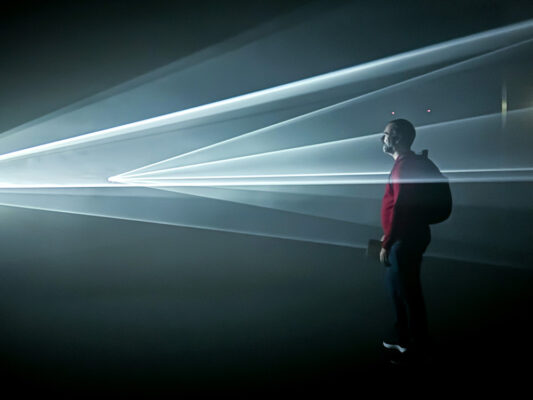Search
To search for an exact match, type the word or phrase you want in quotation marks.
A*DESK has been offering since 2002 contents about criticism and contemporary art. A*DESK has become consolidated thanks to all those who have believed in the project, all those who have followed us, debating, participating and collaborating. Many people have collaborated with A*DESK, and continue to do so. Their efforts, knowledge and belief in the project are what make it grow internationally. At A*DESK we have also generated work for over one hundred professionals in culture, from small collaborations with reviews and classes, to more prolonged and intense collaborations.
At A*DESK we believe in the need for free and universal access to culture and knowledge. We want to carry on being independent, remaining open to more ideas and opinions. If you believe in A*DESK, we need your backing to be able to continue. You can now participate in the project by supporting it. You can choose how much you want to contribute to the project.
You can decide how much you want to bring to the project.

Since the mid-1970s, Anthony McCall (1946, United Kingdom) has been recognized as one of the most unique and innovative artists in his field, which intersects the simple, complex, and sensory realms of cinema, sculpture, design, and performance. Solid Light is the pinnacle collection of works in his career, and the MAAT in Lisbon is exhibiting four pieces from 2007 to 2020 in the Rooms show, which will run until March 17.
McCall’s “solid lights” flow through the dimly lit space like immaterial light sculptures. In these film installations, there is no separation or hierarchy between the projector and screen spaces and the viewer’s space. Consequently, the focus of the cinematic experience shifts away from the projected image (the very aim of cinematography) to an intermediate space where the phenomenon of projection occurs.
The involvement of the viewer’s body is equally essential in Anthony McCall’s creations. The performative dimension of these works arises from the interaction between the spectator’s participation, the bodily sensation, and the perception of the physicality of the forms drawn by light. The spontaneous – yet predictable – action of the audience is to attempt to touch or capture the silken, metamorphic film composed of nebulous lights. While examining the shapes as if they were an object or sculpture, the observer is unaware that they are already part of that visual body; that is, part of the artwork itself.
The projected forms, which McCall calls “impressions,” slowly change, almost imperceptibly, in such a way that the visitor perceives them as a static sculptural form. McCall realized that if he moved an “impression” too quickly, the viewer would stop considering it as a sculpture and would begin to see it as a film. In the artist’s creative approach, the audience is crucial to the discovery of the artwork: their movement, alongside that of the sculpture, establishes the necessary interaction.
Ver esta publicación en Instagram
The photograph Room with Altered Window (1973) welcomes the exhibition. With it, McCall documented one of his first artistic experiments that laid the foundation for Solid Light. The image shows a window covered with black paper with a slit through which a flat strip of sunlight filters – or is projected – into the room. The suspended dust and tobacco smoke in the space help intensify its visibility.
Four installations occupy the adjacent exhibition space in darkness. The two aligned projectors of You and I, Horizontal III (2007) perform a kind of joint dance, while the piece from the Mirror series uses a mirror to enhance and give depth to the projection. From the Acoustic series are Doors and Skylight, two light cones on pedestals with a stormy soundtrack by David Grubbs.
Anthony McCall moves with irrefutable grace in the light-based terrain that he has turned into an artistic genre. His translucent sculptures shaped by hazy smoke engage in a dialogue – or rather, a game or dance – with the viewer; an immersion without which these pieces would have no foundation or discourse. The audience is tasked with breaking the light beams to create new refractions in a reciprocal, three-dimensional stimulation that structures the artist’s work.
Anthony McCall at MAAT Lisbon, until March 17, 2025.

Paco Arteaga is a 360º journalist: he takes photos and videos, writes, translates, edits in CMS (WordPress, Storyblok) and Photoshop, optimizes SEO, proofreads and manages two blogs: Berlinamateurs.com and Withinflorence.com.m. He is attracted to art in all its manifestations. Portfolio: www.paconeumann.com
"A desk is a dangerous place from which to watch the world" (John Le Carré)